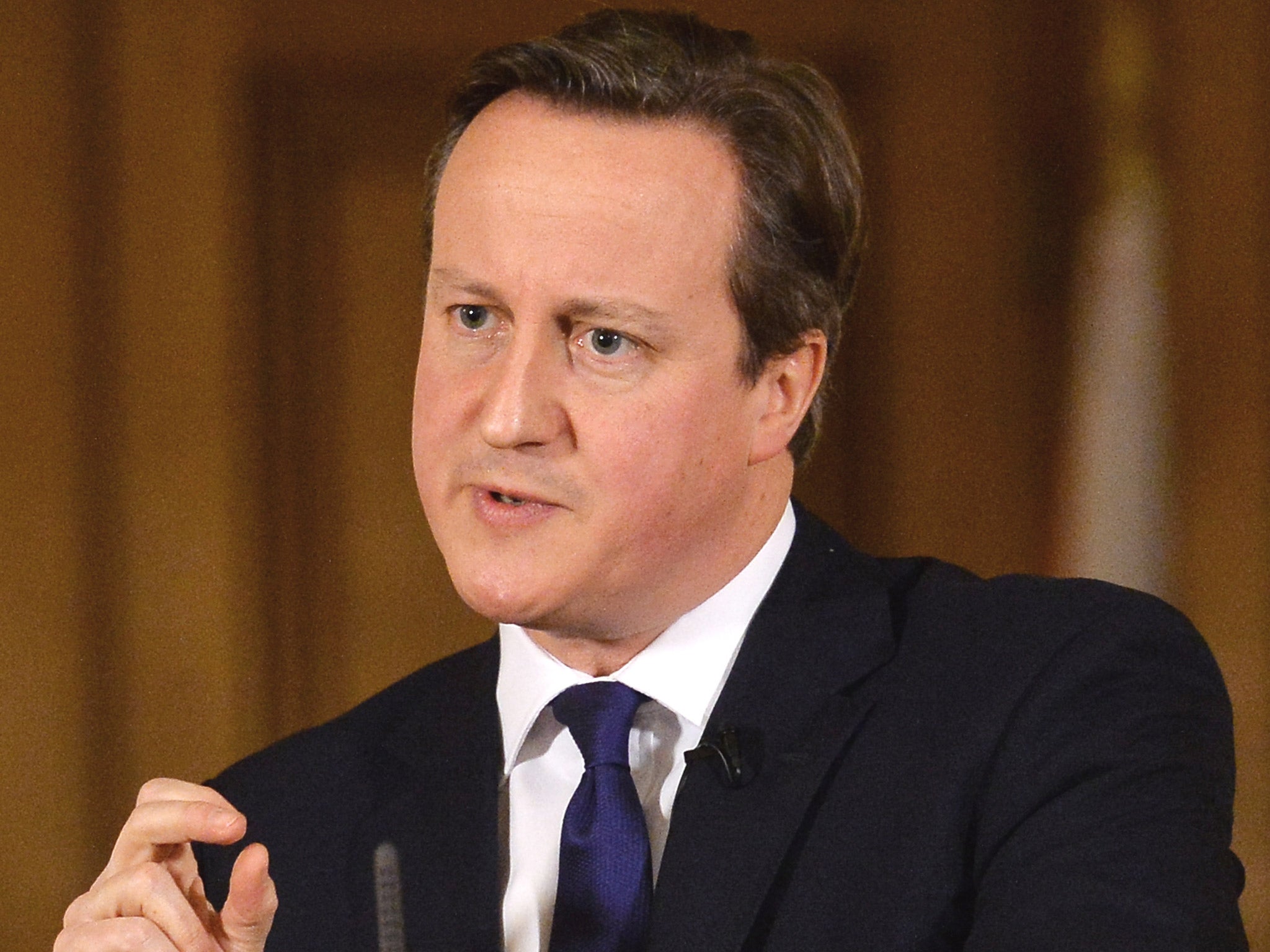Whitehall prepares for a minority Government as David Cameron makes anti-coalition pledge

Your support helps us to tell the story
From reproductive rights to climate change to Big Tech, The Independent is on the ground when the story is developing. Whether it's investigating the financials of Elon Musk's pro-Trump PAC or producing our latest documentary, 'The A Word', which shines a light on the American women fighting for reproductive rights, we know how important it is to parse out the facts from the messaging.
At such a critical moment in US history, we need reporters on the ground. Your donation allows us to keep sending journalists to speak to both sides of the story.
The Independent is trusted by Americans across the entire political spectrum. And unlike many other quality news outlets, we choose not to lock Americans out of our reporting and analysis with paywalls. We believe quality journalism should be available to everyone, paid for by those who can afford it.
Your support makes all the difference.David Cameron has tried to reassure Conservative backbenchers that he is not angling for another coalition with the Liberal Democrats after next year’s general election.
Allies of the Prime Minister hinted that, if the Tories are again the largest party in a hung parliament, they would run a minority government in the hope of securing an overall majority in a second election 12 or 18 months later.
However, Cameron aides dismissed a report in the Conservative-supporting Daily Telegraph that the Tories might include a “no coalition” pledge in their election manifesto next year. Downing Street said: “We’re going all out for victory – you won’t find the PM saying anything else. Our manifesto is about policy. Between now and the election, we’re not going to talk about any outcome other than victory.”
Mr Cameron is highly unlikely to limit his post-election options by formally ruling out a second coalition – not least because, if the Tories and Labour won a similar number of seats, such a move could open to the door to a Lib-Lab coalition.
He has already promised Tory MPs they would get a vote on a coalition next time, after criticism that they were “bounced” into supporting his 2010 agreement with Nick Clegg.
Many right-wing Tories have never warmed to the Coalition and suspect Mr Cameron would rather depend on the Lib Dems for a Commons majority than the critics on his own backbenches. The signals from some in the Cameron camp may be designed to dispel that idea.
Lynton Crosby, the Tories’ Australian election strategist, has urged Mr Cameron to show he is hungry for a Tory victory rather than “playing for a draw”. With the electoral arithmetic stacked against the Tories, they are keen to turn next year’s contest into a “straight choice” between Mr Cameron and Ed Miliband. Limiting speculation about a coalition would help that cause.
But Tory MPs reacted with scepticism to the smoke signals that Mr Cameron would avoid another coalition. One senior backbencher told The Independent: “This is a pathetic and transparent attempt to reassure the Tory right and pretend that Cameron is ‘one of us’ after all. It won’t convince anyone. We know he would rather be in coalition with the Lib Dems than the Tory right. The difficulties we would cause him would make his troubles with the Lib Dems look like the teddy bears’ picnic.”
Moderate Tories warned that a “no coalition” manifesto pledge could repel floating voters as it would look like Mr Cameron had abandoned his attempt to “detoxify” his party.
Mr Clegg would press for a second full-scale coalition if the Tories remained the largest party in a hung parliament, rather than a looser “confidence and supply” arrangement in which the Lib Dems would back the Tories in key Commons votes but would not serve as ministers.
“We have shown since 2010 that coalition works,” said a senior Lib Dem source. “It is not for the politicians to decide the outcome of the next election but for the British people. In the event of a hung parliament, the Lib Dems would seek to do our duty in again providing the strong and stable government the country needs.”
When senior civil servants turn their minds to post-election scenarios, they are expected to devote more time to preparing for a minority government than they did in 2010. Lord Gus O’Donnell, who was Cabinet Secretary at the last election, told MPs this month: “ We didn’t do much work on minority government, a confidence and supply arrangement; we did a little bit. You can imagine that being a more attractive prospect [in 2015] because last time... we were in a recession and it was clear you were going to have to make some really tough decisions on the deficit. This time round the economy is in a recovery stage.”
Lord O’Donnell raised the intriguing prospect of the largest party engineering a Commons vote of no confidence against itself to trigger a second election after 12-18 months. That party would also need the backing of another group of MPs. Under the Fixed-term Parliaments Act introduced by the present Government, the votes of two thirds of MPs are needed to cut short a five-year parliament.
There are growing tensions between the Tories and Lib Dems and signs that the Coalition is running out of steam. With tricky policy decisions deferred until after next year’s election, some Lib Dem MPs believe it would be difficult to make another Lib-Con coalition work. Private contacts between senior Labour and Lib Dem figures have increased markedly in recent months. But the voters, not the politicians, will decide the most likely combination in a hung parliament.
Subscribe to Independent Premium to bookmark this article
Want to bookmark your favourite articles and stories to read or reference later? Start your Independent Premium subscription today.
Join our commenting forum
Join thought-provoking conversations, follow other Independent readers and see their replies
Comments